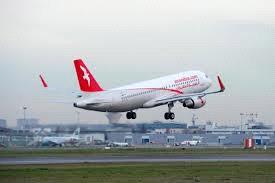-
Top Stories -
Most Popular
-
Jordan's oil bill sees increase by 4.9%
-
RJ planted 1,000 trees to lower its environmental footprint
-
Italian city wants to ban gelato and pizza sales after midnight
-
Jurgen Klopp admits Liverpool need 'crisis' from Man City and Arsenal to win title
-
French President Macron scores penalty in charity match
-
Under pressure Juventus and Milan face off in fight for second place
-
Army carries out 6 airdrops on Gaza with international participation
-
Jordan lifts ban on exporting food commodities
-
Death toll in Gaza rises to 34,305
-
Jordan Condemns Israeli Police Allowing Extremist Settlers' Incursion into Al-Aqsa
-
Customs department thwarts cigarette smuggling attempt
-
Army carries out 7 airdrops on Gaza with international participation
-
Jordanian tourism departures surge by %25.3
-
Oil settles slightly higher as Iran plays down reported Israeli attack
-
Kuwait Ambassador: Volume of Kuwaiti investments in Jordan amount USD 20 billion
-
Warm weather almost countrywide on Saturday
-
Madaba Governorate prepares to welcome King on Monday
-
Dead Sea Ultramarathon to close roads on Friday
-
PDTRA lowers Petra's entry ticket fees for non-Jordanians
-
COVID patient’s infection lasts record 613 days
NATS Reports Record Environmental Savings
06-07-2014 11:09 PM
Ammon News - AMMONNEWS - More efficient air traffic control procedures, innovative new technologies and the better use of airspace saved a record breaking 190,000 tonnes of aircraft CO2 last year, according to NATS. |
- no comments
Ammon News reserves the right to delete any comment at any time, and for any reason, and will not publish any comment containing offense or deviating from the subject at hand, or to include the names of any personalities or to stir up sectarian, sectarian or racial strife, hoping to adhere to a high level of the comments as they express The extent of the progress and culture of Ammon News' visitors, noting that the comments are expressed only by the owners.
| name : * | |
| comment : * | |







 comment replay
comment replay 